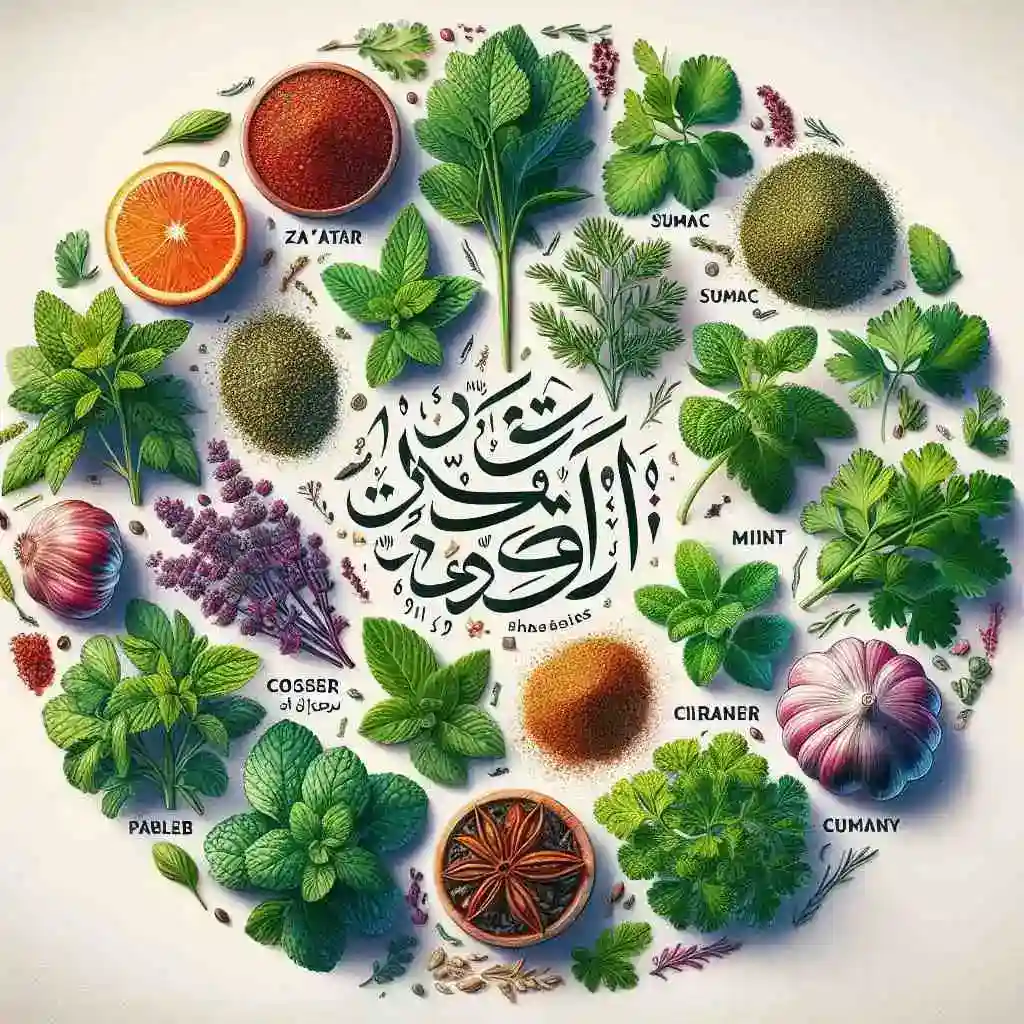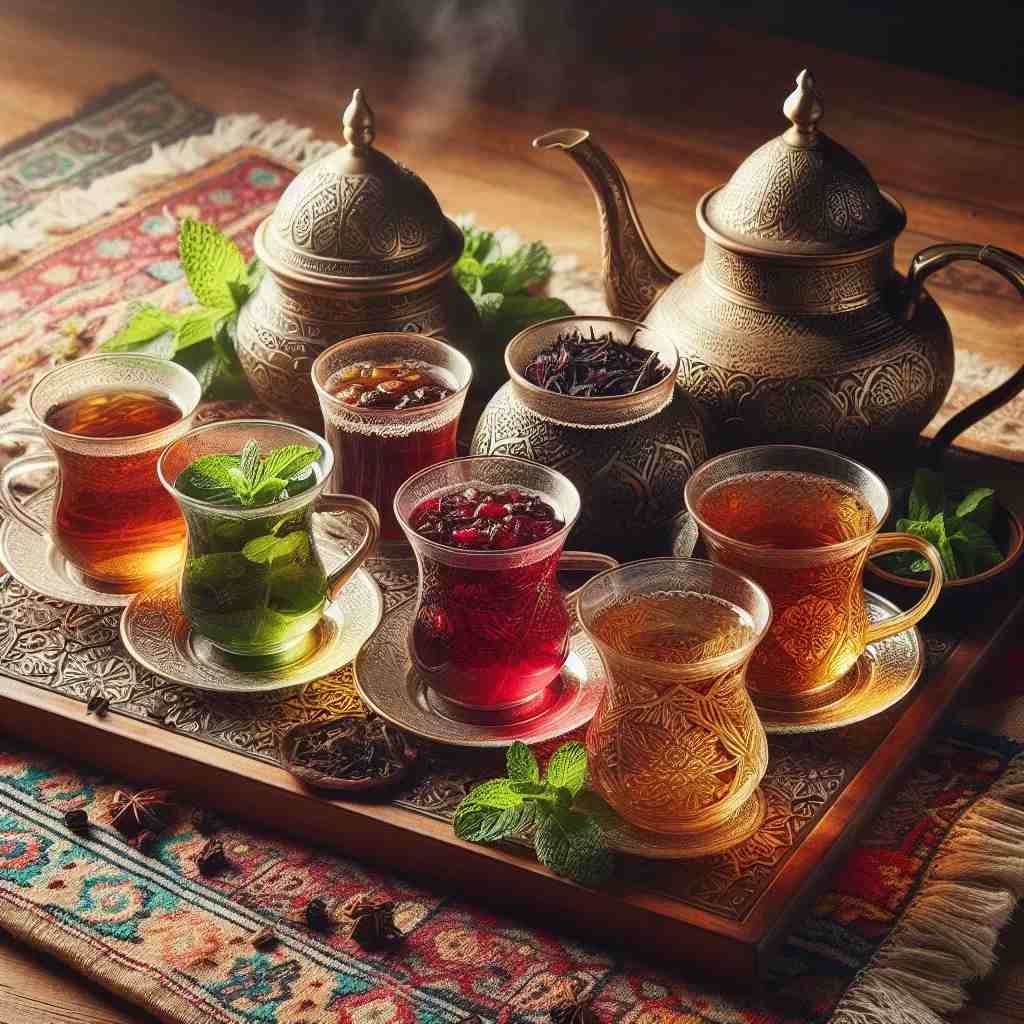Arabic coffee is famous for its strong aroma and cultural significance, and it comes in different variations across the Middle East and North Africa. Each type has its own distinct flavor profile and brewing method, providing a delightful experience for coffee lovers.
Taste of Tradition: 6 Types of Arabic Coffee to Awaken Your Senses
Traditional Arabic Coffee (Qahwa Arabiyya)

This is the classic Arabic coffee that originated from the Arabian Peninsula. It is brewed using lightly roasted coffee beans and infused with cardamom, resulting in a fragrant and mildly spicy taste. It is traditionally served in small handle-less cups, often accompanied by dates or sweets as a symbol of hospitality.
Turkish Coffee
While not exclusively Arabic, Turkish coffee holds a significant presence in the Arab world. It involves simmering finely ground coffee beans with water, sometimes adding cardamom, to create a thick and strong brew. Turkish coffee is commonly enjoyed throughout the day in cafes and homes, often accompanied by a small glass of water to cleanse the palate between sips.
Plain Coffee (Gahwa Saada)
Gahwa Saada is a simple yet elegant brew, without any added spices. It allows the natural flavors of the coffee beans to shine, offering a pure and robust taste. This type of coffee is favored by those who appreciate the unadulterated essence of coffee.
White Coffee (Gahwa Baida)
White coffee refers to a lighter version of Arabic coffee that is typically not roasted. The beans are lightly roasted or sometimes left unroasted, resulting in a milder flavor profile. It is often served during breakfast or as an afternoon pick-me-up, complementing lighter meals and desserts.
Spiced Coffee (Ers)
Ers is a popular spiced coffee variation, particularly enjoyed in Sudan and some parts of the Arabian Gulf. It combines coffee with a blend of aromatic spices like cinnamon, cloves, and ginger, creating a warming and flavorful beverage. Ers is often served during social gatherings and special occasions, symbolizing warmth and hospitality.
Arabic Cardamom Coffee (Kahwa)
Kahwa is a prevalent type of coffee in the Gulf countries, known for its strong aroma and distinctive cardamom flavor. It is brewed using dark-roasted coffee beans infused with cardamom pods, and sometimes accompanied by saffron or cloves for added complexity. This aromatic brew is a staple in traditional Gulf hospitality, often served along with dates or sweets to guests.
Coffee Cherry Tea (Qishr)
Qishr is a unique coffee-based drink made from dried coffee cherry husks. It provides a lighter and fruitier alternative to traditional coffee, with subtle floral notes and a touch of sweetness. Qishr is commonly consumed in Yemen and parts of East Africa, valued for its refreshing taste and health benefits.
Health Benefits of Arabic Coffee

Arabic coffee, with its delightful taste and cultural significance, has potential health benefits due to its antioxidants and caffeine content. Consumption in moderation may enhance mental alertness and cognitive function. However, excessive intake can lead to adverse effects. Arabic coffee plays a prominent role in the coffee culture of diverse Arab countries, symbolizing hospitality and fostering social connections through unique traditions and rituals.
- Arabic coffee contains antioxidants that protect cells from damage caused by free radicals and oxidative stress.
- Moderate consumption of Arabic coffee can enhance mental alertness, concentration, and mood.
- Excessive caffeine intake may lead to adverse effects, such as jitteriness, insomnia, or increased heart rate.
- Adding excessive sugar or cream to Arabic coffee can negate potential health benefits.
- Coffee culture varies across Arab countries, reflecting unique traditions and rituals.
- Arabic coffee plays an integral role in hospitality customs, symbolizing warmth, generosity, and friendship.
- Understanding coffee culture provides insights into the rich traditions and customs surrounding Arabic coffee, fostering connections and celebrating shared heritage.
Coffee Culture in Different Arab Countries
Coffee culture in Arab countries is diverse, with each country having its own traditions and rituals. Arabic coffee holds cultural significance in Saudi Arabia and Gulf states, Yemen has elaborate coffee ceremonies, Egypt and Lebanon have vibrant coffeehouses, and North African countries enjoy variations of Arabic coffee paired with sweet pastries or snacks. Understanding these coffee cultures offers insights into the rich tapestry of traditions and customs, connecting people across borders and generations.
- Arabic coffee plays a significant role in hospitality customs in Saudi Arabia and the Gulf states.
- Yemen has a long-standing tradition of coffee drinking with elaborate ceremonies.
- Egypt and Lebanon have coffeehouses as social hubs for gatherings and conversations.
- North African countries enjoy different variations of Arabic coffee alongside mint tea.
- Coffee drinking in Arab countries is often accompanied by sweet pastries or snacks.
- Coffee culture connects people across borders and generations.
- Understanding Arab coffee traditions provides insights into rich cultural heritage.
Key Takeaways
- Arabic coffee comes in various types, each with its own distinct flavor profile and brewing method.
- Traditional Arabic coffee is infused with cardamom and served in small handle-less cups as a symbol of hospitality.
- Turkish coffee, common in the Arab world, is prepared by simmering finely ground coffee beans with water, resulting in a thick and strong brew.
- Plain coffee allows the natural flavors of the coffee beans to shine.
- White coffee is a lighter version of Arabic coffee, often served during breakfast or as a pick-me-up with lighter meals and desserts.
- Spiced coffee combines coffee with aromatic spices, creating a flavorful beverage enjoyed at social gatherings.
- Arabic coffee is a staple in Gulf hospitality, often brewed with cardamom and served with dates or sweets.
- Coffee cherry tea provides a lighter and fruitier alternative to traditional coffee, consumed in Yemen and parts of East Africa.
- Arabic coffee consumption in moderation may have health benefits but excessive intake should be avoided.
- Coffee culture varies across Arab countries, showcasing unique traditions and rituals.
- Arabic coffee plays a significant role in hospitality customs and foster social connections.
- Understanding Arab coffee traditions offers insights into the rich cultural heritage of Arab countries.



